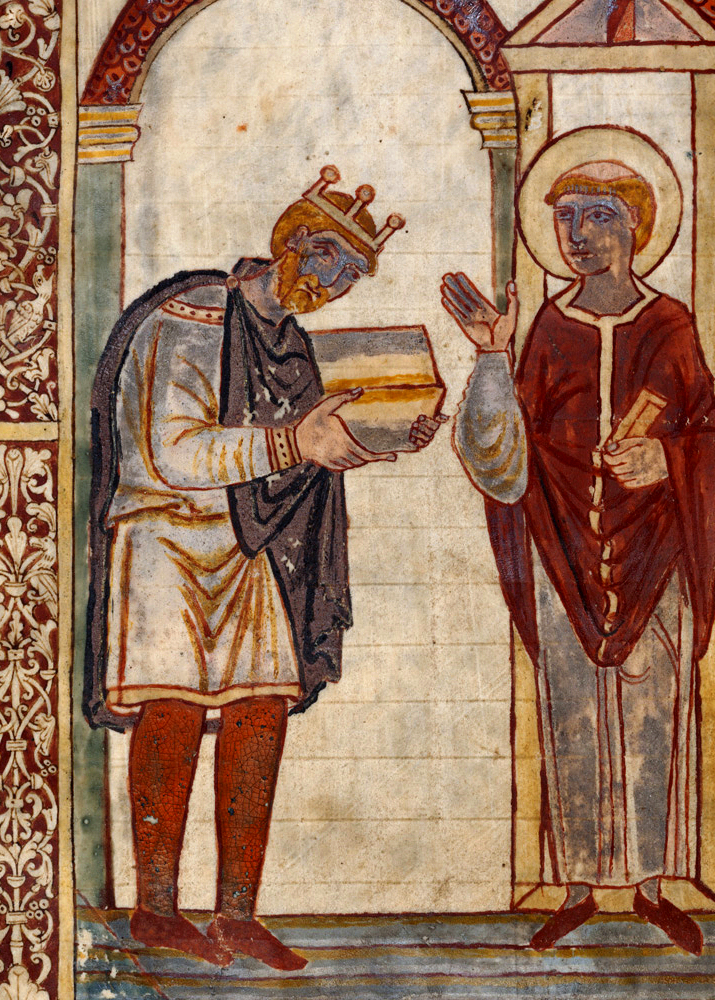Æthelstan the Glorious part 5: Taking the Crown

Æthelstan’s father, Edward the Elder, died on 17 July 924. However, it was by no means certain that Æthelstan would be the next king. Edward had sons by his wife, Ælflæd, who had been brought up in Wessex, whereas Æthelstan was almost unknown there. So when Edward died, the question of who would be king after him, and king of where, was very much open.
Æthelstan was acclaimed king by the witan of Mercia but there was a son, Ælfweard, in Wessex who expected a crown too. Perhaps the most likely outcome would have been for the two kingdoms to split apart again, each ruled by one of Edward’s sons. But then, barely two weeks later, Ælfweard followed Edward into death. So convenient a death could not but arouse suspicion, even though Æthelstan appears to have had no hand in it.
It was a year before Æthelstan was finally consecrated king, his coronation, for coronation it was, the first in these islands, taking place in Kingston, Surrey, on the River Thames, the traditional border between Wessex and Mercia. By placing his coronation there, Æthelstan was making a clear political point: he would be king of both kingdoms, cleaving neither to one nor the other, but ruling both justly and well, to the limit of his abilities.
Æthelstan’s commitment to this service was total. Uniquely among early Medieval kings, Æthelstan never married and there are no records of bastard children born to him. His father, who had moved on to wife number three during his lifetime when his rule needed reinforcement from a different direction, had left no shortage of heirs. Seeing the realm come close to descending to civil war on his accession, Æthelstan vowed himself to chastity, thus ensuring that one of Edward’s younger sons would eventually succeed him. By doing this, he prevented a political schism between partisans of factions supporting him or his brothers, at the price of a lifetime of celibacy.
In this hard road he had chosen, Æthelstan was supported by his fervent faith. He believed, to the core of his being, that God had given him the kingship for the purpose of the safeguarding and care of his people, and that failure to act thus would come at the price of his soul. As king, Æthelstan enacted a stream of legislation to better protect his people, from outlawing the death penalty on those under the age of 15 to requiring his royal officials and the stewards of royal estates to care for the needy and provide food for the destitute: Æthelstan was determined that none of his people should die for lack of food, for God had given him the duty to feed them.
0 Comments